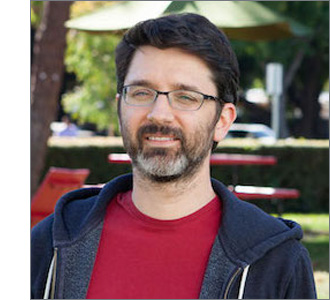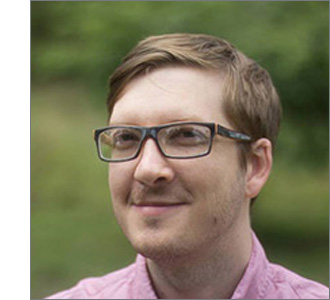The Chrome Dev Summit live, day one
Hi, Habr! An online broadcast of the main Chrome event of the year will start soon: Google Chrome Dev Summit 2015.

Unfortunately, it happens on the other side of the globe, so most of the broadcast will be on our night with you (beginning at 20:00 Moscow time), however, it is very difficult to get past such an event. So, this is what awaits you:
')
The first day of the Chrome Dev Summit is dedicated to modern, fast and convenient web applications. Google Chrome engineers will share with you their experience in creating fast and smooth downloads, reliable operation in the conditions of unstable (mobile) connection and competent interaction with users. All workshops and lectures are available live and will be posted as recordings later. Note: The broadcasting time is Moscow time (UTC + 3, RTZ + 2).

Welcome to the Chrome Dev Summit. Our friends Paul Lewis (Paul Lewis) and Jake Archibald (Jake Archibald) will tell you about HTTP 203 and the main news that the summit will be about.

Darin Fisher, Vice President of Chrome, will share his thoughts on the past, present and future of the web.

Every year, millions of new users go online. Today we can observe a whole generation of people who see the web for the first time. Tal Oppenheimer (Tal Oppenheimer) will talk about what we can offer such users, what difficulties they have and what should be taken into account when developing products for a young audience. Of course, all this concerns both web applications and Google Chrome directly: after all, the Internet should be equally convenient for both beginners and old-timers.

Modern web applications are almost as fast and stable as the "classic" ones, especially if they are built using the latest technologies. Alex Russell (Alex Russel) will talk about Service Workers and the principles of building successful user interaction with applications.

Today, using HTTPS to protect user information and sensitive data is a must have. Fortunately, we have Google Chrome and Emily Stark, who will tell you how to switch to HTTPS correctly and without any problems using new tools for developers.

Service workers help your web applications work without connecting to the global network, but they can also be used to improve online capabilities. Jeff Posnick will talk about how to optimize application load times for new and regular users, as well as share useful libraries that will simplify your work on optimizing the structure of the application as much as possible.

Timely personalized notifications help users not to waste time on checking mail / messengers / aggregators and other applications manually, allowing you to save time for really important tasks without getting out of the information flow. Owen Campbell-Moore will show you how to send push notifications to your desktop browser and mobile device, even if a user has already left your site.

The contacts of the digital and physical worlds are often called “augmented reality”, but so far these are all toys as compared to what integration allows for offline and online technologies. Scott Jenson and Vincent Scheib talk about how using Bluetooth Low Energy and web technologies the Internet helps to reduce the digital world to the real now, without expensive VR glasses and sophisticated equipment.

The proliferation of smartphones and all sorts of online services allowed users to more easily find each other, communicate, share photos and do literally in one tap something that used to take several minutes. The reverse side of this progress was the issues of privacy and security, which require smart solutions: not too complicated to scare away the user, but at the same time reliable and effective. Elisabeth Morant will talk about how developers can interact with the permissions system in Google Chrome, so as not to frighten users and securely protect their data.

Taylor Savage will talk about working with the Polymer library, which has been actively developing all year. During this time, Polymer managed to grow from version 1.0, which was shown at the Google I / O 2015 conference, into a product for which individual conferences are being held (Polymer Summit, this fall). The product that is used by the largest companies on millions of web pages. Polymer is rightly one of the largest projects we have recently launched, and we are happy to share this technology with the entire web development community.

Continuing the Polymer library theme, Rob Dodson (Rob Dodson) will talk about how a combination of Web Components and the Service worker allows web developers to get new, incredibly flexible programming tools. We want to share how the Polymer team sees a new paradigm for creating web applications based on these two technologies, and also describes how easy it is to create modern web applications using Polymer.

It is difficult for people with disabilities to use "ordinary" technologies. Alice Boxhall will talk about how we made Chrome more friendly to such a group of users and how developers interact with the Accessibility functionality of our browser.
Fasting on the second day of the Chrome Dev Summit can be viewed here .
You can watch the broadcast on the official website of the Chrome Dev Summit , on YouTube or here:

Unfortunately, it happens on the other side of the globe, so most of the broadcast will be on our night with you (beginning at 20:00 Moscow time), however, it is very difficult to get past such an event. So, this is what awaits you:
')
Day One - Progressive Web Apps: November 17-18, 2015
The first day of the Chrome Dev Summit is dedicated to modern, fast and convenient web applications. Google Chrome engineers will share with you their experience in creating fast and smooth downloads, reliable operation in the conditions of unstable (mobile) connection and competent interaction with users. All workshops and lectures are available live and will be posted as recordings later. Note: The broadcasting time is Moscow time (UTC + 3, RTZ + 2).

20:00 - 20:05 - Greeting and a couple of words from the organizers
Welcome to the Chrome Dev Summit. Our friends Paul Lewis (Paul Lewis) and Jake Archibald (Jake Archibald) will tell you about HTTP 203 and the main news that the summit will be about.

20:05 - 20:45 - Basic Theses
Darin Fisher, Vice President of Chrome, will share his thoughts on the past, present and future of the web.

20:45 - 21:15 - Developing for billions
Every year, millions of new users go online. Today we can observe a whole generation of people who see the web for the first time. Tal Oppenheimer (Tal Oppenheimer) will talk about what we can offer such users, what difficulties they have and what should be taken into account when developing products for a young audience. Of course, all this concerns both web applications and Google Chrome directly: after all, the Internet should be equally convenient for both beginners and old-timers.
21:15 - 22:00 - Coffee break

22:00 - 22:30 - Modern web applications
Modern web applications are almost as fast and stable as the "classic" ones, especially if they are built using the latest technologies. Alex Russell (Alex Russel) will talk about Service Workers and the principles of building successful user interaction with applications.

22:30 - 00:00 - Switch to HTTPS: authentication and the following steps. More about HTTPS
Today, using HTTPS to protect user information and sensitive data is a must have. Fortunately, we have Google Chrome and Emily Stark, who will tell you how to switch to HTTPS correctly and without any problems using new tools for developers.

00:00 - 00:30 - Accelerate downloads using Service Workers
Service workers help your web applications work without connecting to the global network, but they can also be used to improve online capabilities. Jeff Posnick will talk about how to optimize application load times for new and regular users, as well as share useful libraries that will simplify your work on optimizing the structure of the application as much as possible.

00:30 - 01:00 - Increasing the involvement of push-notifications
Timely personalized notifications help users not to waste time on checking mail / messengers / aggregators and other applications manually, allowing you to save time for really important tasks without getting out of the information flow. Owen Campbell-Moore will show you how to send push notifications to your desktop browser and mobile device, even if a user has already left your site.
01:00 - 01:30 - Lunch break

01:30 - 02:00 - Interaction with reality: the Internet, Bluetooth and IoT
The contacts of the digital and physical worlds are often called “augmented reality”, but so far these are all toys as compared to what integration allows for offline and online technologies. Scott Jenson and Vincent Scheib talk about how using Bluetooth Low Energy and web technologies the Internet helps to reduce the digital world to the real now, without expensive VR glasses and sophisticated equipment.

02:00 - 02:30 - Ask permissions: convenient UI for managing sensitive data
The proliferation of smartphones and all sorts of online services allowed users to more easily find each other, communicate, share photos and do literally in one tap something that used to take several minutes. The reverse side of this progress was the issues of privacy and security, which require smart solutions: not too complicated to scare away the user, but at the same time reliable and effective. Elisabeth Morant will talk about how developers can interact with the permissions system in Google Chrome, so as not to frighten users and securely protect their data.
02:30 - 03:00 - Coffee break

03:00 - 03:30 - Polymer - On the State of Things
Taylor Savage will talk about working with the Polymer library, which has been actively developing all year. During this time, Polymer managed to grow from version 1.0, which was shown at the Google I / O 2015 conference, into a product for which individual conferences are being held (Polymer Summit, this fall). The product that is used by the largest companies on millions of web pages. Polymer is rightly one of the largest projects we have recently launched, and we are happy to share this technology with the entire web development community.

03:30 - 04:00 - Development of modern web applications using Polymer
Continuing the Polymer library theme, Rob Dodson (Rob Dodson) will talk about how a combination of Web Components and the Service worker allows web developers to get new, incredibly flexible programming tools. We want to share how the Polymer team sees a new paradigm for creating web applications based on these two technologies, and also describes how easy it is to create modern web applications using Polymer.

04:00 - 04:30 - Accessibility
It is difficult for people with disabilities to use "ordinary" technologies. Alice Boxhall will talk about how we made Chrome more friendly to such a group of users and how developers interact with the Accessibility functionality of our browser.
Day two - RAIL, Performance and DevTools: November 18-19, 2015
Fasting on the second day of the Chrome Dev Summit can be viewed here .
You can watch the broadcast on the official website of the Chrome Dev Summit , on YouTube or here:
Source: https://habr.com/ru/post/271067/
All Articles